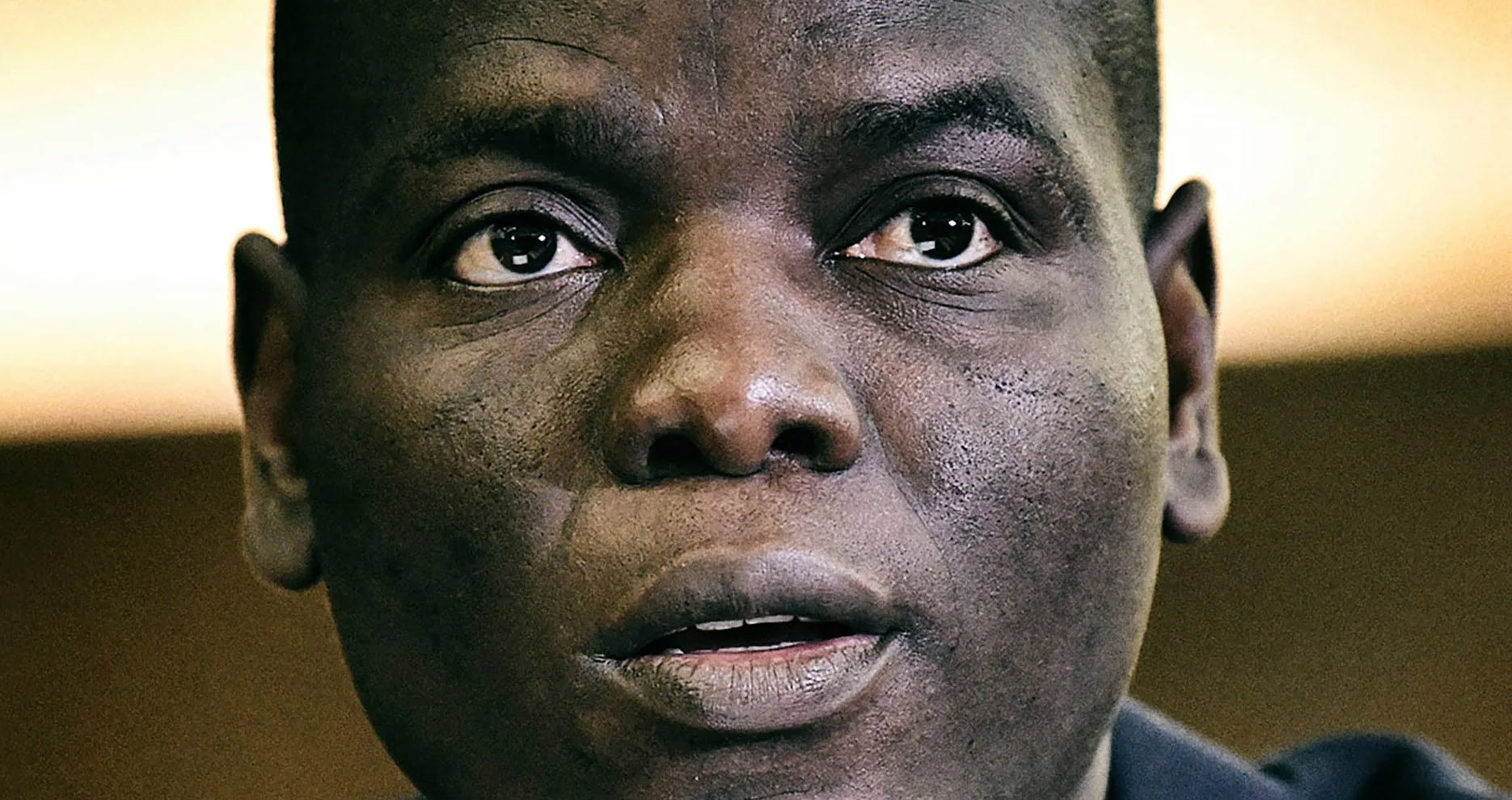Last month, the Department of Justice and Constitutional Development (DoJ) belatedly launched the National Action Plan to Combat Racism, Racial Discrimination, Xenophobia and Related Intolerance. The National Action Plan, which South Africa committed to drafting in 2001 in terms of the Durban Declaration and Programme of Action, is in some ways a stirring call to action that is urgently needed.
However, despite the government’s clear awareness of its mandate to protect non-citizens’ rights, legal and policy developments such as the proposed National Labour Migration Policy and the Employment Services Amendment Bill risk deepening societal divisions, fuelling xenophobia and may also be in conflict with South Africa’s domestic and international human rights obligations.
 Residents walk hand in hand during a march through the streets of Soweto on 16 June 2021 by South Africans wanting the removal of foreign residents from the area and the eviction of people from various buildings. (Photo: EPA-EFE / Kim Ludbrook)
Residents walk hand in hand during a march through the streets of Soweto on 16 June 2021 by South Africans wanting the removal of foreign residents from the area and the eviction of people from various buildings. (Photo: EPA-EFE / Kim Ludbrook)
Unfounded xenophobic sentiment
Parallel to the National Action Plan’s launch, the DoJ launched a baseline study, to, among other measures, determine the level of “anti-foreigner sentiment” in South Africa. Of the adults surveyed, 44% agreed with the statement that “foreigners should not be allowed to live in South Africa because they take jobs and benefits away from South Africans”.
There are two problems with this widely held view.
First, it is rooted in discrimination against non-citizens, a prejudice that the Constitution is wholly against, stating: “South Africa belongs to all who live in it”, and entitling “everyone” to the vast majority of constitutional rights. More fundamentally, this position is consistent with the general principle that all human rights are universal and inalienable.
Second, and as the survey itself acknowledges, there is no evidence that non-citizens are in fact taking jobs and benefits from South Africans. Indeed, a recent World Bank report found that immigrants actually “generate jobs for locals”. The International Labour Organization and the Organisation for Economic Co-operation and Development reached a similar conclusion in a report focusing on 10 developing countries including South Africa, titled How Immigrants Contribute to Developing Countries’ Economies.
https://www.dailymaverick.co.za/article/2022-06-06-rajesh-and-atul-gupta-arrested-in-dubai-but-dont-expect-them-in-sa-too-soon/
On paper, government understands how to tackle xenophobia
The National Action Plan accepts that a range of actions is necessary to combat xenophobia, including “acknowledging and condemning acts of bias-motivated violence whenever they occur, enacting hate crime laws, strengthening law enforcement, and prosecuting offenders”. However, it also goes further by acknowledging the need to deal with “all the underlying causes of the tensions between communities and foreign nationals”, which would undeniably include the extremely high rates of poverty, inequality and unemployment in South Africa. The National Action Plan also recognises the importance of the Inter-Ministerial Committee on Migration’s work in pursuing these goals.
If the National Action Plan is anything to go by, at least one part of the government understands the coordinated and systemic measures needed to combat xenophobia. Then why is it that certain government authorities seem to take measures that appear to contradict these positions and/or play into the popular xenophobic sentiments identified by the survey?
 Minister of Home Affairs Aaron Motsoaledi recently publicly characterised ‘illegal foreigners’ as ‘rascals’. (Photo: Felix Dlangamandla)
Minister of Home Affairs Aaron Motsoaledi recently publicly characterised ‘illegal foreigners’ as ‘rascals’. (Photo: Felix Dlangamandla)
For example, the minister of home affairs, Dr Aaron Motsoaledi, recently publicly characterised “illegal foreigners” as “rascals”. The minister of justice and constitutional development, Ronald Lamola, in his own speech at the National Action Plan’s launch, asserted that the “enforcement of law cannot be characterised as xenophobia, particularly where the state acts within the confines of the law”. This implies that criticism of government rhetoric misses the point and lends credence to views such as those adopted by Motsoaledi, and, perhaps more concerning, the dangerous views publicly espoused by openly xenophobic groups such as Operation Dudula, the South Africa First party and politicians like Herman Mashaba.
These statements are antithetical to the stated aims of the National Action Plan in opposing xenophobia at its root causes. But there is a deeper problem with Lamola’s analysis: South African law can and does (although it should not) perpetuate and encourage xenophobia.
Does the law in South Africa operate to fuel xenophobia?
The way South African laws describe non-citizens is arguably demeaning of their dignity. The Immigration Act’s use of the phrase “illegal foreigner” is itself problematic. No person is or can be described as “illegal” and no person should be characterised as such based on their immigration status.
Moreover, as the International Commission of Jurists (ICJ) has long argued, existing laws operate from a fundamentally incorrect premise that non-citizens do not have the right to work in South Africa, which violates the South African Constitution and the country’s international law obligations.
Even where laws protect this right to work, those tasked with their implementation often misapply these laws to promote their own xenophobic and anti-poor agendas, as the Socio-Economic Rights Institute of South Africa (Seri) has extensively documented in the case of informal traders and informal waste reclaimers.
Finally, despite their apparent commitment to the contrary, the authorities have at times also continued to bake xenophobic language and sentiment into their law reform agenda. Examples are the much-debated proposals by the Department of Employment and Labour in the National Labour Migration Policy and the Employment Services Amendment Bill, which were until recently open for public comment.
Does the proposed employment law reform address the root causes of xenophobia?
To its credit, the draft National Labour Migration Policy details a wide range of domestic law and international human rights instruments that it seeks to comply with and sets one of its key priorities as the “improv[ement] of conditions for all migrant workers and their families in terms of human rights and fundamental rights at work as well as fighting xenophobia and any forms of inhuman treatment of migrant workers”.
On closer inspection, however, the direction of the policy and the bill is firmly based on protectionism for workers who are South African nationals. The bill, in particular, seeks to achieve this through sector-specific quotas for non-citizen workers and fortification of the existing labyrinth of requirements faced by any employer seeking to hire any person who is not a citizen, permanent resident or refugee.
With the exception of permanent residents and refugees, employers will continue to be legally required to “satisfy themselves that there are no persons in the Republic, other than foreign nationals, with the requisite skills… before recruiting a foreign national”. The retention of this provision renders the sentiments expressed in the National Development Plan, repeated in the policy, which highlight the “need to adopt a much more progressive migration policy in relation to skilled as well as unskilled migrants”, practically meaningless.
Making matters worse, neither the policy nor the joint ILO/OECD report it mentions to illustrate the utility of quotas, justify the imposition of quotas with reference to an evidence base or South Africa’s domestic law and international human rights obligations.
Furthermore, a submission by Seri and Lawyers for Human Rights after consultation with their clients — including domestic workers, farmworkers, refugees and asylum seekers — indicates that there may be little support for such quotas from non-citizen workers.
Alarmingly, and in direct conflict with international law, the policy and bill also seek to provide for the enforcement of immigration law by labour inspectors. Labour inspectors’ proper mandate in terms of both the Basic Conditions of Employment Act and international law focuses directly — if not exclusively — on protecting workers’ rights, irrespective of their citizenship or documentary status. While this may have been aimed at improving coordination between government departments, granting labour inspectors this power would undoubtedly discourage non-citizen workers from disclosing, honestly, employment conditions, out of fear of deportation or harassment.
Therefore, far from addressing the root causes of xenophobia, the proposed employment law reforms risk worsening the position of non-citizen workers and “fuelling xenophobia”, something the Supreme Court of Appeal has explicitly warned South African authorities against.
We cannot replicate discrimination of the past
 Justice Minister, Ronald Lamola, in his own speech at the National Action Plan (NAP’s) launch, asserted that the ‘enforcement of law cannot be characterised as xenophobia particularly where the state acts within the confines of the law’. (Photo: Flickr / Dirco)
Justice Minister, Ronald Lamola, in his own speech at the National Action Plan (NAP’s) launch, asserted that the ‘enforcement of law cannot be characterised as xenophobia particularly where the state acts within the confines of the law’. (Photo: Flickr / Dirco)
At the National Action Plan’s launch, Minister Lamola captured the enormity of the task ahead, saying: “Our generation needs to be different in every way, we cannot replicate the discrimination of the past in any way.”
We remain deeply concerned that the government’s current policy direction will do the exact opposite. As a matter of principle, the government must emphatically disagree with the 44% of people in South Africa who think foreigners should not be allowed to live in South Africa “because they take jobs and benefits away from South Africans” and proactively work energetically to change these attitudes.
Half-hearted policies and legal amendments such as those proposed in the National Labour Migration Policy and the Employment Services Amendment Bill will not suffice, and neither will the rhetoric of the National Action Plan alone. Thoughtful, targeted and comprehensive action is required.
There is also still a need for much closer coordination within the government, as different ministries’ actions are often at odds with one another. The proposed National Labour Migration Policy and Employment Services Amendment Bill would lead South Africa down the path of entrenching discrimination, something which we vowed “never again” to do. DM/MC
Tim Fish Hodgson is the International Commission of Jurists’ legal adviser on social, economic and cultural rights. Kaajal Ramjathan-Keogh is the director of the ICJ Africa Programme and Mulesa Lumina is ICJ Africa’s communications and legal officer.




 Justice Minister Ronald Lamola has released a statement on the extraditions South Africa is dealing with. According to officials, the country is currently handling about 50 cases. (Photo: Flickr / Dirco)
Justice Minister Ronald Lamola has released a statement on the extraditions South Africa is dealing with. According to officials, the country is currently handling about 50 cases. (Photo: Flickr / Dirco)